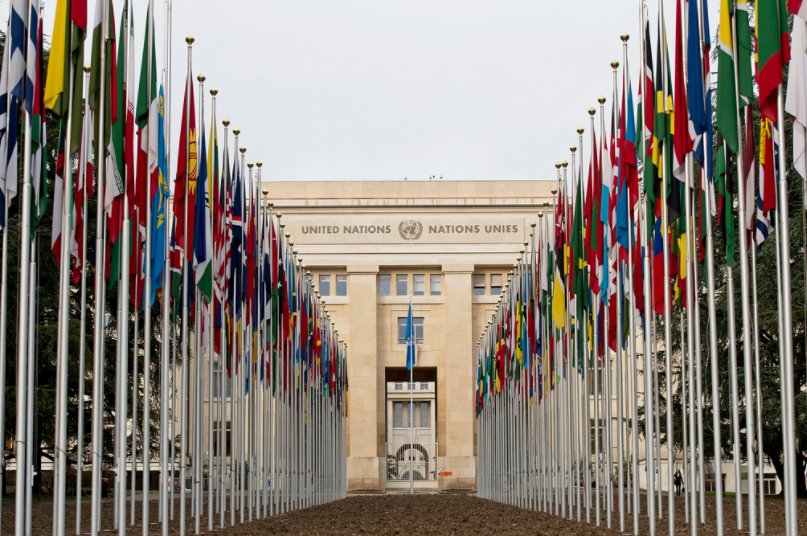HISTORY: State & Nation Building - Civic vs. Cultural Concepts

What is a nation? There are two main interpretations of the concept nation which social and political scientists debate: civic vs. cultural/ethnic.
It would appear that the concept of nation is complex considering subjective and abstract elements are attributed to the central definition of what constitutes a nation. Despite this ambiguity, several factors are often cited as being fundamental to the formation and composition of a nation. This would include, geographic territory, customs, tradition, religion, history and the language of a people. The concept can actually be broadly defined along two distinctive representations - one affiliated with civic and political aspects and another representing, sociocultural and ethnic components. Irrespective of the defining factors, the existence of a nation-State is unequivocally identified as the shared cultural characteristics and ideological values which act as the reference axis for further integration and consolidation.

In regards to a civic oriented definition, this would entail various phases resulting in economic and cultural unification, solidarity through mass education with the media enabling universal political identity formation. The result is active participation within a politically defined territory in which the expansion of the State apparatus includes the perpetuation of the civic duties and roles as well as universal policies for a large and often heterogeneous population. As such, it will historically encompass the large scale assimilation of ethnically diverse groups into a collective mass of state defined citizenry. This was akin to what Benedict Anderson identified as “imagined communities” since individual members are unknown to one another but imagine themselves in communication via a shared consciousness born out of a State defined identity.
As such, I would surmise civic definitions of a nation would entail strong State influence, effective politicizing of the population and stressing unification along ideological lines. A prime historical example would be Russification attempts of the Caucasus region under Soviet rule. This would be done in spite of cultural, linguistic and ethnic differences within a heterogeneous population. Defining a nation based on cultural and ethnic bounds would account for longer historical periods which would entail migrations, Diasporas and even territorial claims. Group identity could be based on tribal and clan affiliations resulting in blood alliances and familial kinship structures.
Congratulations @fugetaboutit! You have completed some achievement on Steemit and have been rewarded with new badge(s) :
Click on any badge to view your own Board of Honor on SteemitBoard.
For more information about SteemitBoard, click here
If you no longer want to receive notifications, reply to this comment with the word
STOPfront-runner , Thanks you
Spot on: "As such, I would surmise civic definitions of a nation would entail strong State influence, effective politicizing of the population and stressing unification along ideological lines".
Great post.
Yes this is precisely what State level elected officials support. It perpetuates their position in society among the masses. This exists everywhere since humans are collectively bred to always "look" for leaders.
Yeah... authority! as a psychological trend it's obviously needed, and completly instinctive, when you are growing up and learning from other, older human beings. But then it remains installed in human psyche as way of not thinking for ourselves, but looking up to the "specialist" or any other kind of psychological authority. I wanted to share this one with you: https://steemit.com/politics/@homerus/how-to-win-the-war-of-ideas-the-work-of-susan-george I think it is totally related... let's say, a practical example of what you're explaining in this post.
Nation-building is a normative concept that means different things to different people. The latest conceptualization is essentially that nation-building programs are those in which dysfunctional or unstable or "failed states" or economies are given assistance in the development of governmental infrastructure, civil society, dispute resolution mechanisms, as well as economic assistance, in order to increase stability. Nation-building generally assumes that someone or something is doing the building intentionally.
But it is important to look at the evolution of theories of nation-building and at the other concepts which it has both supplanted and included. Many people believe that nation-building is evolutionary rather than revolutionary, that is takes a long time and is a social process that cannot be jump-started from outside. The evolution of the Italian city-states into a nation, the German city-states into the Zollverein customs union and later a nation, the multiple languages and cultural groups in France into the nation of France, the development of China from the warring kingdoms, took a very long time, and were the result, not only of political leadership, but of changes in technology and economic processes (the agricultural and then industrial revolutions), as well as communication, culture and civil society, and many other factors.
Yes. The concept of "nation" being an arbitrary construct requires a period of indoctrination and myth-making. The post Wesphalian states, having divorced the political from the religious, now use the crutch of "ethnic" or "racial" concepts to justify legitimacy. The French Revolution further complicates the Wesphalian concept by endorsing the farce of a state "arising" from the "people." All of which leads to the modern chaos of "ethnic self-determination" (whatever that means).
This is true. there are many considerations and factors, especially when viewed over the expanse of time. Political is just one predominant aspect, especially when it relates to the old human incentive towards expansion, empire building and greed through the acquisition of resources. In some sense, modern and contemporary theories and thoughts seems to re-align these base and primal motivations in an efforts to conceptualize our ever growing globalized society. Yes technology plays an important role in shaping identities and forging new ones, despite efforts to re-nationalize. In the end, the social engineers will have their way as collectivism is the norm for almost all of human society. The Anthropocene is our techno-ladden collectivized proof as we march lock step under the final banner of consumerism as a collective border-less identity.